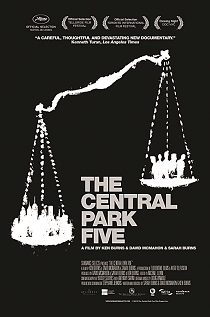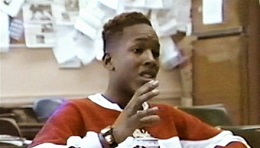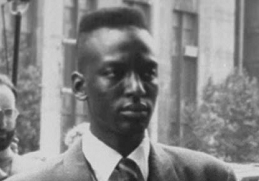 “What we need to realize is that we’re not very good people. And we’re often not.”
“What we need to realize is that we’re not very good people. And we’re often not.”
These less than hopeful words from MIT professor Craig Steven Wilder pretty much sum up the theme of The Central Park Five, a documentary (appearing on PBS tonight and screened at the Kansas City Film Fest this past weekend) about five young men wrongly accused of rape and assault in New York in 1989. It’s a story that will make you disappointed in humanity and righteously angry at those responsible for incarcerating the wrong people.
In 1989, five teenagers, Antron McCray, Kevin Richardson, Raymond Santana, Kharey Wise and Yusef Salaam, were arrested for the rape and assault of a 28-year-old investment banker, Trisha Meili, on the north side of Central Park. Although the boys were nowhere near Meili when the incident occurred and there was no physical evidence linking them to the crime, the NYPD forced confessions out of their young suspects after hours and hours of interrogation. The Central Park Five follows every aspect of the case, from the crime itself and its coverage in the media, to the trial, incarceration, exoneration and long-term effects that all of it had on the five accused.
 Filmmakers Ken Burns, Sarah Burns (his daughter) and David McMahon get a great set of sources, including not just the Central Park five, but also many journalists who covered the story, as well as historians and activists—even former New York City mayor Ed Koch shows up. If hindsight is 20/20, the amount of perspective the film’s talking heads provide practically amounts to a telephoto lens. It provides a comprehensive and detailed telling of a long-term, complicated series of events.
Filmmakers Ken Burns, Sarah Burns (his daughter) and David McMahon get a great set of sources, including not just the Central Park five, but also many journalists who covered the story, as well as historians and activists—even former New York City mayor Ed Koch shows up. If hindsight is 20/20, the amount of perspective the film’s talking heads provide practically amounts to a telephoto lens. It provides a comprehensive and detailed telling of a long-term, complicated series of events.
Unfortunately, none of the trial’s prosecutors, or any police officers who investigated the Central Park five case are on hand to share their version of events—they declined the opportunity for an interview. But even presenting both sides of the story wouldn’t save them from looking absolutely horrible, more interested in getting a conviction than convicting the right people.
 To make things worse, even after the convictions of Santana, Wise, Salaam, Richardson and McCray was overturned, neither the cops nor the district attorney’s office have ever apologized for essentially ruining the lives of the five young men they accused. It’s enough to make you want to hurl something heavy at the screen.
To make things worse, even after the convictions of Santana, Wise, Salaam, Richardson and McCray was overturned, neither the cops nor the district attorney’s office have ever apologized for essentially ruining the lives of the five young men they accused. It’s enough to make you want to hurl something heavy at the screen.
Even though the Central Park five were eventually exonerated, the documentary doesn’t end on an up note. The filmmakers’ point is that although this is the kind of story that makes us sigh, shake our heads and say “never again,” very similar injustices occur all the time. And, in fact, this story still isn’t resolved, with a lawsuit by the Central Park five against the City of New York filed in 2003, and the city still refusing to settle ten years later.
While The Central Park Five could be criticized as being too heavy-handed, none of the information it presents appears to be factually incorrect (and if it is, those who could deny it refuse to go on the record), which is really depressing. If there is any inspiring aspect of the movie, it’s that seeing it brings to light some of the worst traits of human nature, and I left the theater wanting to immediately correct those traits in myself and others. Anyone who doesn’t probably needs to do some self-examining.
Click here for more Kansas City FilmFest coverage!






Comments on this entry are closed.